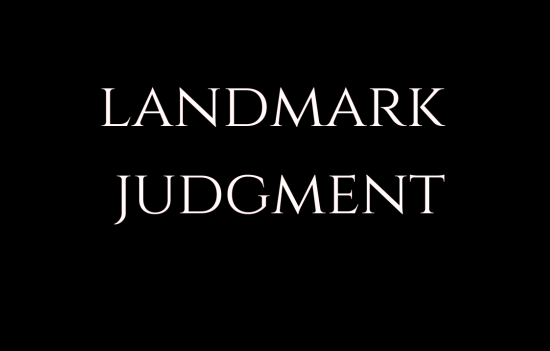CASE BRIEF
APPELLANT- The State of Madhya Pradesh and Anr.
RESPONDENT- Dr. Yashwant Trimbak
Decided on- 4 December, 1995
CASES REFERRED-
- Municipal Corporation of Delhi v. Birla Cotton, Spinning and Weaving Mills, Delhi and Another, 1960 (9) S.C.R. 251
- Samsher Singh v. State of Punjab and anr.
- Shamrao v. State of Maharashtra, 1964 (6) S.C.R. 446
- The State of Bihar v. Rani Sonabati Kumari, 1961(1) S.C.R. 728
STATUTES REFERRED-
- Constitution of India
- Madhya Pradesh Civil Services Pension Rules, 1976
- Rules of Executive Business
FACTS OF THE CASE-
- That the Respondent had retired from the post of Director in Institute of Animal Health and Veterinary Biological Products, Mhow on 31 July, 1983 with sanctioned retirement benefits.
- That after some time, some financial irregularities committed by him during his tenure of service 1977 onwards came into light and an enquiry was proposed against him on 6 April, 1985.
- That a charge-sheet was filed against him on 2 April, 1986 for conduct of a departmental enquiry as a result of which 50% of his pension and a part of gratuity was withheld.
- That the Respondent approached the Madhya Pradesh HC for quashing the enquiry and the decision against him, under Rule 9(2)(b)(i) of the Pension Rules.
- That the matter was transferred to the State Tribunal and the Tribunal quashed the departmental enquiry and its decisions, following which an appeal was filed in the Supreme Court by the State.
ISSUES INVOLVED-
- Whether it is open for the Court to examine the validity of an order passed in the name of the Governor under Article 166(2) of the Constitution?
- Whether the power to sanction conferred on the Governor under Rule 9(2)(b)(i) of the Pension Rules can be conferred upon the Council of Ministers by making rules under Article 166(3) of the Constitution?
CONTENTIONS OF PARTIES-
- APPELLANTS
- The Counsel for Appellants submitted that the order for departmental enquiry against the Respondent had been passed in the name of the Governor under Article 166(2) of the Constitution. Therefore, its validity is not in question and the Tribunal committed gross error in quashing the order.
- It was further contended that power to accord sanction under Rule 9(2)(b)(i) of the Pension Rules is an executive power and the Governor transferred it to the Ministers via Rules of Executive Business under Article 166(3) of the Constitution. The order was very much valid and the Governor is not mandated to sign such orders himself.
- RESPONDENT
- It was argued that the Pension Rules have been framed under Article 309 of the Constitution, and the above mentioned Rule gives power of sanction to the Governor only, not the Council of ministers.
- Further, the sanction was not ordered by the Governor himself, so Article 166(2) is not attracted in the matter and the Tribunal was justified in quashing it all the same.
JUDGMENT-
The Supreme Court Bench comprising Justices G.B. Pattanaik and S.C. Aggarwal held that the departmental proceedings were signed by the Under Secretary to the Government by Order of the Governor, therefore it is immune from attack that it was not sanctioned by the Governor himself under Article 166(2) of the Constitution.
The Court also observed that except the matters of Constitution that require his own discretion, the personal satisfaction of the Governor is not required in all executive matters. Such matters can be allocated to the Council of Ministers also.
The Court further said that the power of the Governor under Section 9(2)(b)(i) of the Rules had been delegated by him to the Council of Ministers under Article 166(3) and they had rightfully taken the decision to grant sanction against the Respondent.
Thus, the Tribunal had erred in quashing the above mentioned order.
RULE OF LAW-
The question of law in dispute here was that whether the Governor has the power to shift his powers to the Council of Ministers under Article 166(3) of the Constitution to perform executive functions in his name.
CONCLUSION-
It might be right to say that the Tribunal had erred in treating the sanction as not valid, because the order clearly stated that the sanction had been signed in the name of the Governor. One must do a harmonious construction of laws to expand their ambit instead of construing them in a rigid manner. The Rules of Executive Business being rules framed under Article 166(3) clearly fall under its ambit and must be understood in its entirity.

